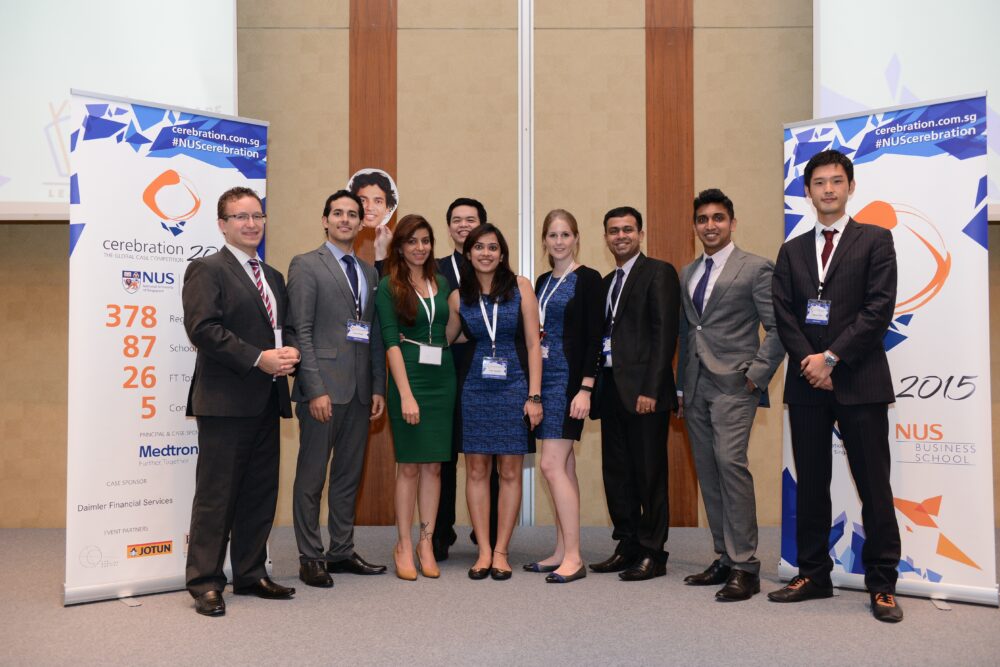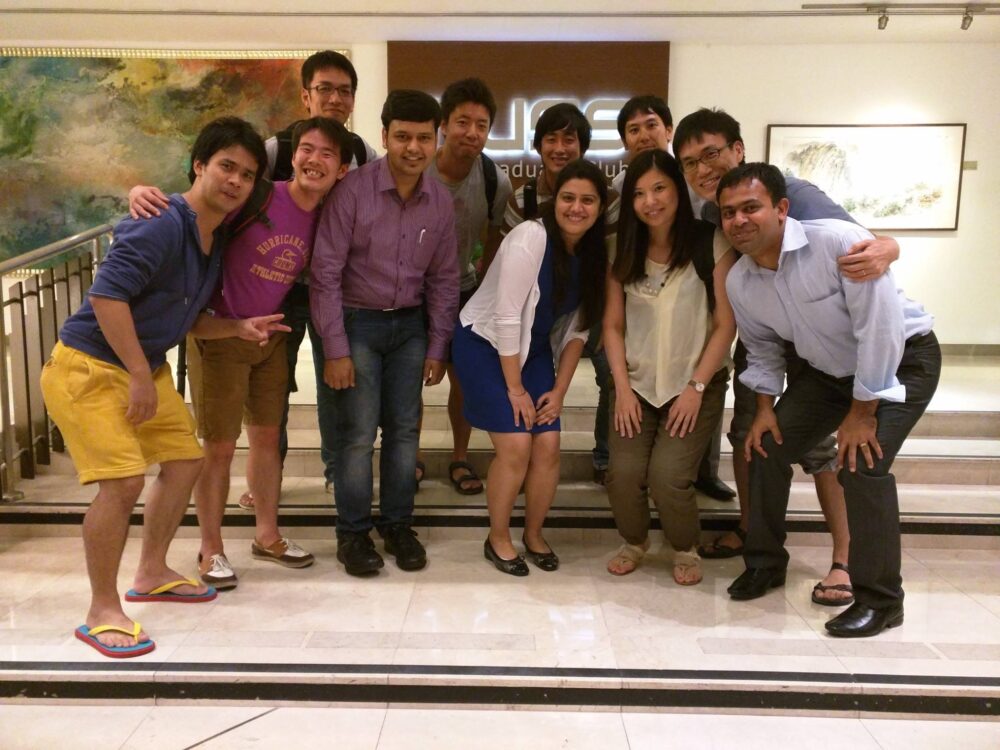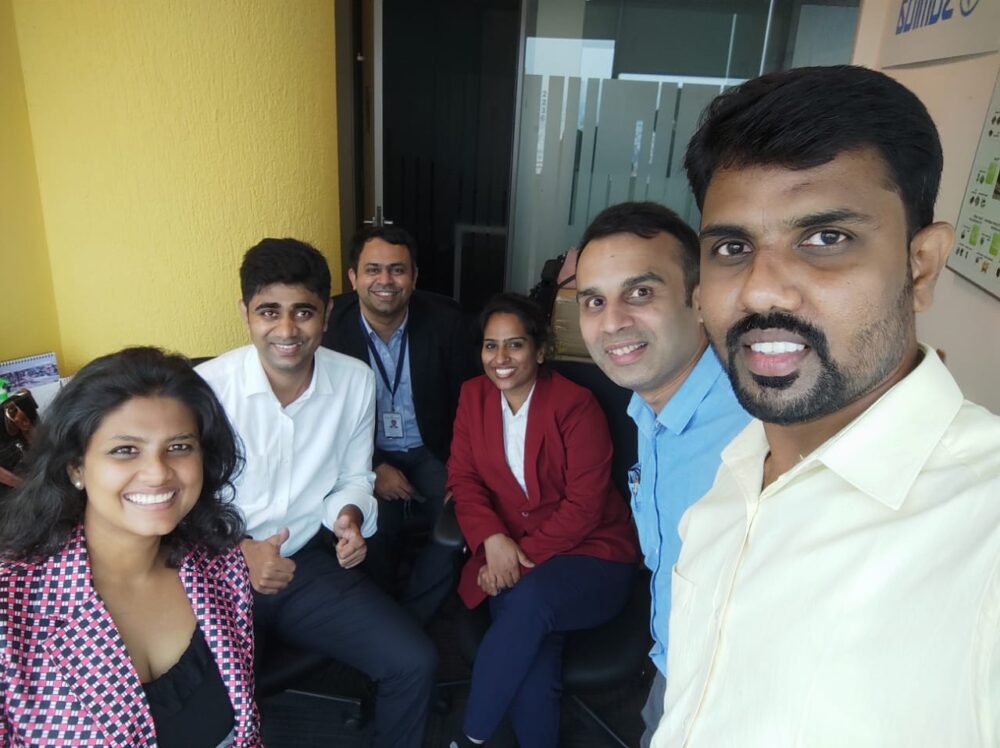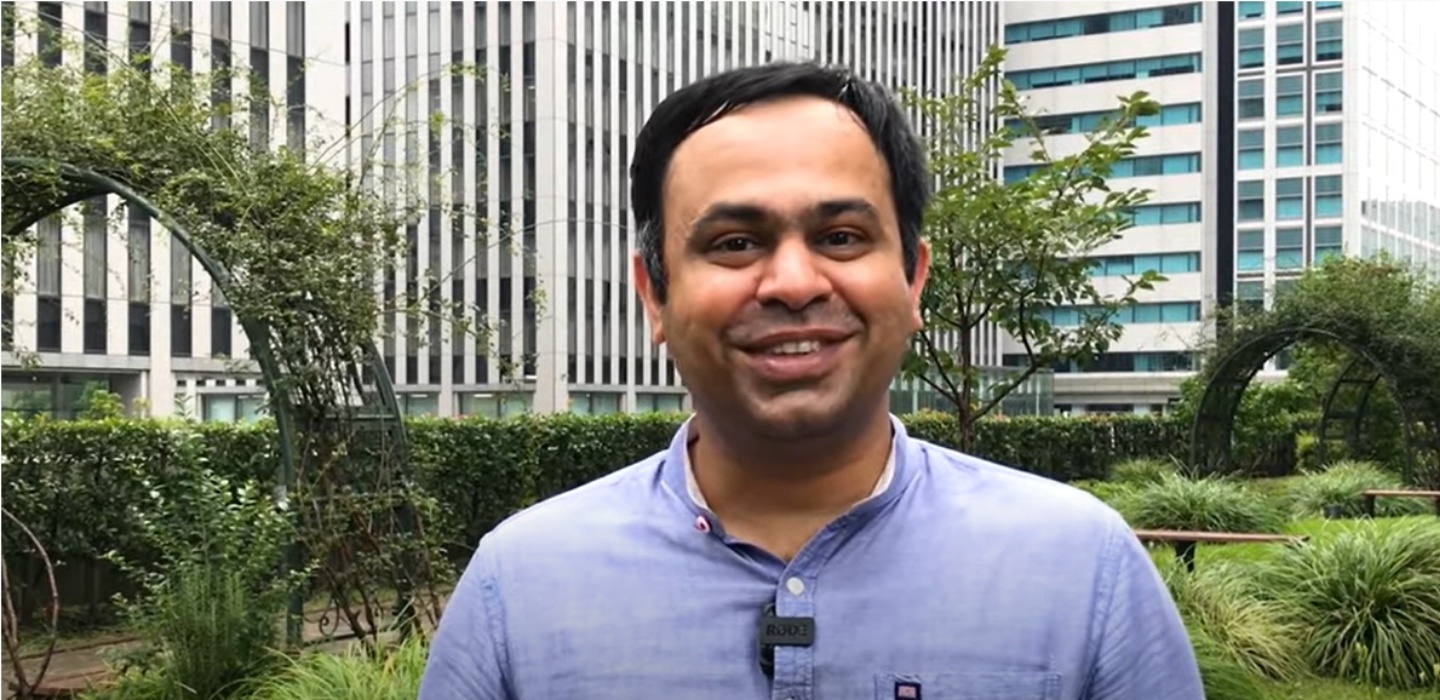In this Global Impact series, we look at how NUS Business School alumni are shaping the future, and making a positive difference around the world. Prasad Bakre (MBA 2017) grew up in India but started learning Japanese from a young age. In this interview, he recounts his MBA journey and how it has helped him forge closer connections between India and Japan.
As a child, Prasad Bakre basked in the sights and sounds of Pune, a city in western India. Then at age seven, he started to soak in the sounds of the Japanese language. His curiosity for Japanese had led to lessons at Pune’s Indo Japanese Association. But it was not a smooth start. He did not like the lessons when they took up his outdoor playtime during vacations.
The young Prasad did not expect the Japanese lessons to entwine his life with Japan in future, nor did he expect himself to be part of a team that raised over 7 million yen (about S$85,000) for COVID-stricken Indians. But step by step, Prasad found himself on such a path.
As he grew up, Prasad developed greater interest and proficiency in the language. He did his bachelor’s and master’s degree in Japanese at the Jawaharlal Nehru University in India, and also went to Nagoya University in Japan as a research student for a year.
He had been working in Japan for six and a half years when the thought of doing an MBA emerged. At that time, Prasad was helping his firm, which dealt in IT solutions, to manage its overseas subsidiaries and implement sales strategies. Somehow, he felt that he had hit a bottleneck in his work.
There was a voice in his head. Prasad knew he needed to up his game in order to go further. Communication skills. Negotiation skills. Skills that would allow him to thrive in an international setting.
There is no better place to gain these skills than in an international hub like Singapore, thought Prasad. He had attended an information session on The NUS MBA while in Tokyo, and when he was in Singapore for a work trip in 2014, he asked for an opportunity to sit in for an MBA class.
The NUS MBA experience
The insightful case studies and intellectually-stimulating class discussions made him confident that the NUS MBA was what he was looking for.

Prasad (third from right) is part of the organising committee for NUS Cerebration 2015, a student-run case competition.
Recounting beneficial aspects of his MBA experience, Prasad mentioned the management communications camp, now known as the “Launch Your Transformation” camp.
“I think that made me aware of a lot of things about soft skills and communication. It was mostly based on role-play, so you have to think on your feet and that’s what you would apply in real life too,” said Prasad.
He also finds The NUS MBA’s cross-discipline approach valuable, as he feels that business is never in silos. While his MBA specialisation was in general management, Prasad was exposed to different fields such as finance and marketing. Within the university, he was also introduced to entrepreneurship and Singapore’s active start-up scene through the NUS Enterprise events.
Prasad also treasures the network he has gained. When he encounters difficult business issues, he would call some of his MBA classmates to bounce off ideas. They still keep in touch, with friendly banter, support and all.

Prasad (far right) with his MBA classmates, after a discussion on business in Japan. (Photo taken pre-pandemic)
After graduating with an NUS MBA, Prasad found his next journey with Sumida Corporation, a listed Japanese electronic component manufacturer. He worked in the Singapore branch for three years as a strategy and planning manager, and led the setting up of new operations in India. Now he is the Director of Sumida Electric (India), and also part of Sumida’s President Office in Japan.
“We are very much focused on the next generation of technology,” said Prasad. “We are in the automotive sector, and we see it gradually transitioning to cleaner vehicles. That means electric vehicles, hybrid electric vehicles, and various types of vehicles that use alternative fuels.”
He finds it meaningful that the company is also looking at clean manufacturing and other technologies that help to reduce carbon footprint.

Prasad (third from left) with his team at Sumida Electric (India). (Photo taken in compliance with regulations)
Outside of work, Prasad is involved in another meaningful project. The Ayurveda Society of Japan and the Ayurveda Association of Japan had approached him, among other Indian and Japanese professionals, to help raise funds for medical devices, such as oxygen concentrators, for Indian COVID-stricken patients. The project has raised over S$85,000 in two rounds of fundraising thus far.
It is one example of how Prasad brings the people of India and Japan closer together. On his social media accounts, he would sometimes share about the cultural and business aspects of these two countries.
Much like his younger days, Prasad continues to live in the sights and sounds of India and Japan. Only this time, he also views the world, and creates his own impact, through the added multi-cultural lens of Singapore and the business lens of The NUS MBA.






